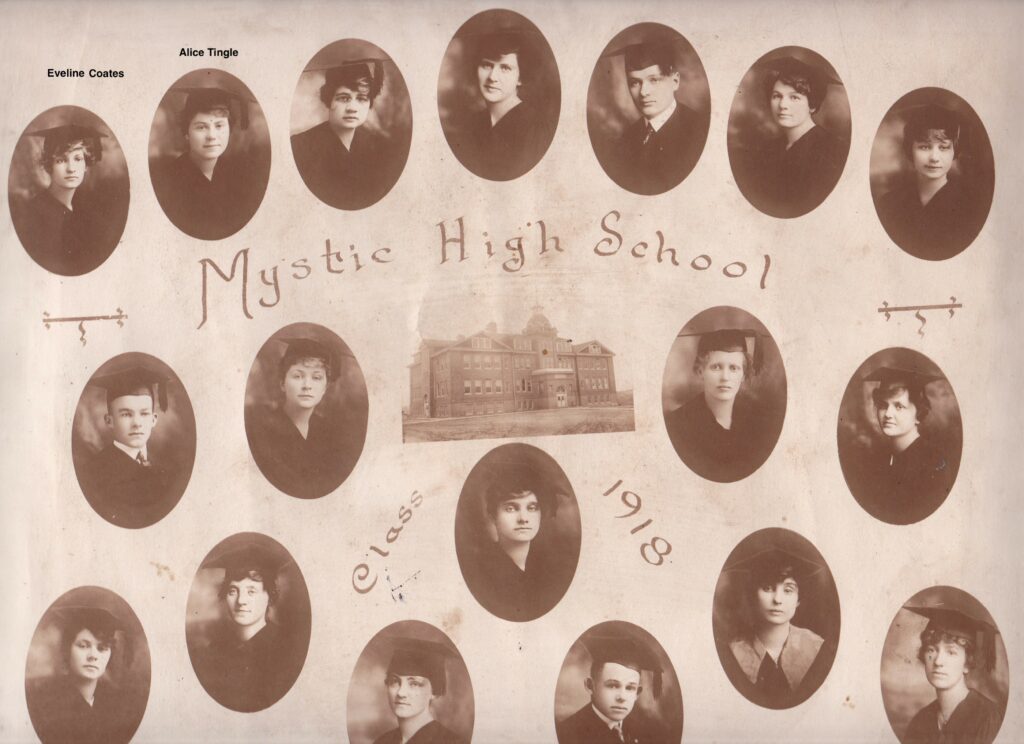
I shared a photo of my grandmother Eveline Coates’ high school graduating class in Mystic, Iowa a few weeks (now months!) ago. Along with the photo and her diploma, a couple of other mementos were saved. One is the program for the Junior-Senior Banquet in honor of the graduating Seniors. It was interesting to see how World War I seemed to be the overarching theme of the festivities. I decided to take a deeper look at what her life may have been like during the 1917-1918 school year. There was a lot going on, a war and the beginning of an influenza pandemic to name the two biggies. The list of related posts is getting long, so I’ll link them at the bottom.
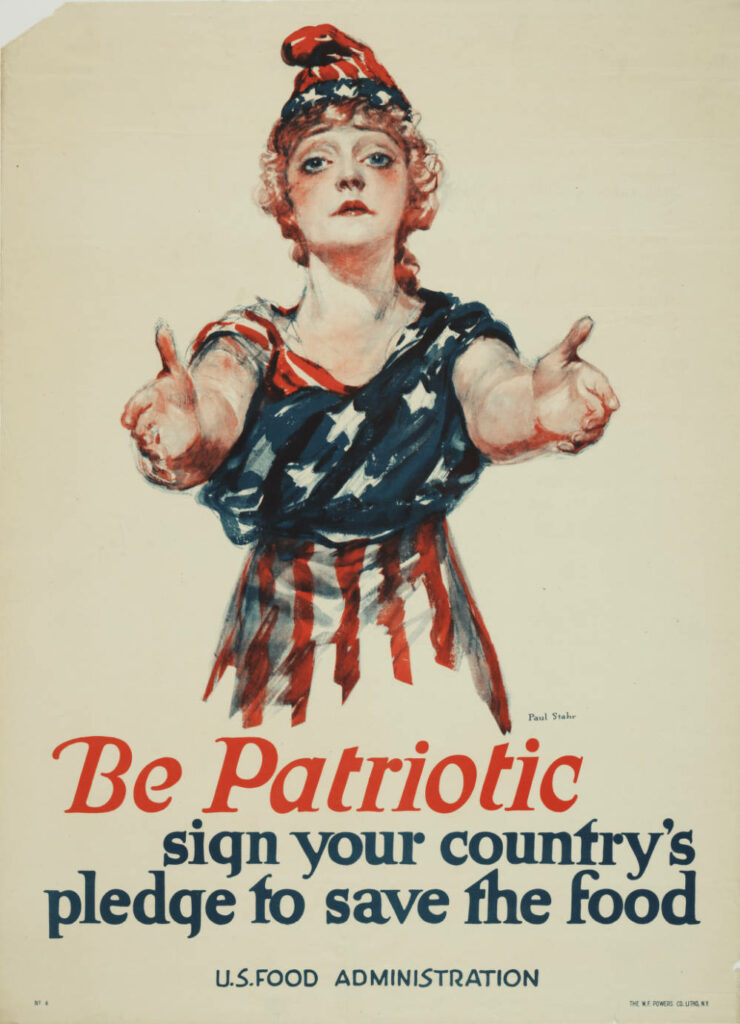
Readers of the local newspapers published in Appanoose County had read about the national food campaign since before the U. S. joined the war in the spring of 1917. Once the U.S. went to war, the food campaign intensified. Herbert Hoover, who headed the U. S. Food Administration, didn’t hold back, telling Americans to stop eating so much!
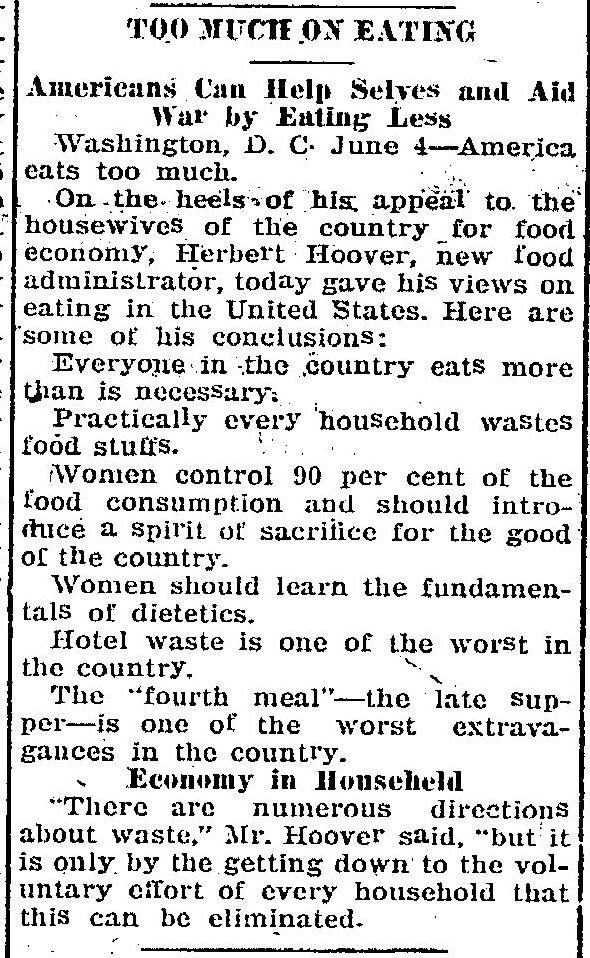
On October 15th, local readers might have seen a sample pledge card in preparation for the upcoming food pledge week later in October (immediately following a Liberty Bond campaign).
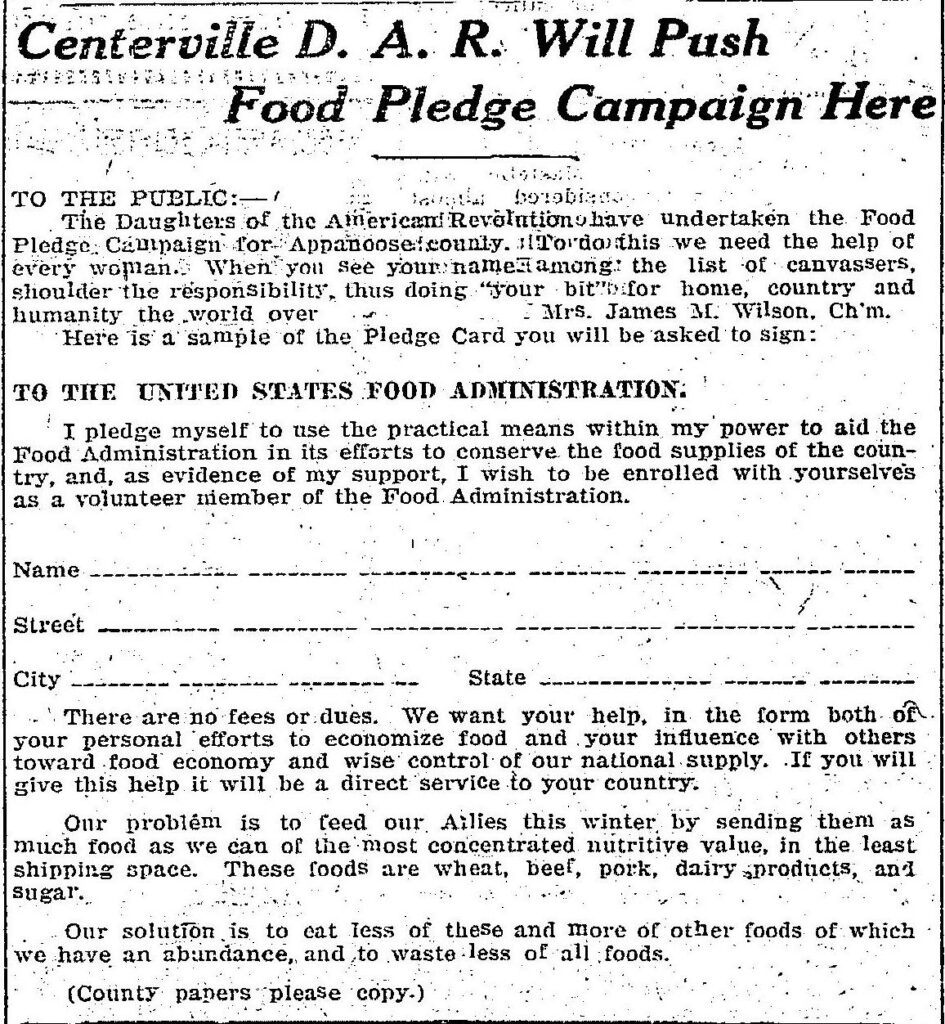
Although the food pledge campaign was not exactly new at this point, a couple of days before the above, the paper published an article providing the back story to the food pledge campaign, hoping to encourage a majority of families to join the effort to save food to help the war effort. Most of the publicity was directed to women, who were told that their domestic duties were needed to win the war. They would be Kitchen Soldiers. One of their first assignments: sign the food pledge.

All of the thread below are part of the same article.
Women of Iowa were asked to sign the pledge, which would allow the government to create a mailing list to communicate directly with them.

The campaign started six weeks earlier, but hit some snags, so the government wanted to quash any misunderstandings and make a further appeal to the housewives of Iowa. Those who didn’t sign on, well, they would represent a new class of “slackers.”

Readers were told that college girls, fraternal organizations, and churches had joined the movement..
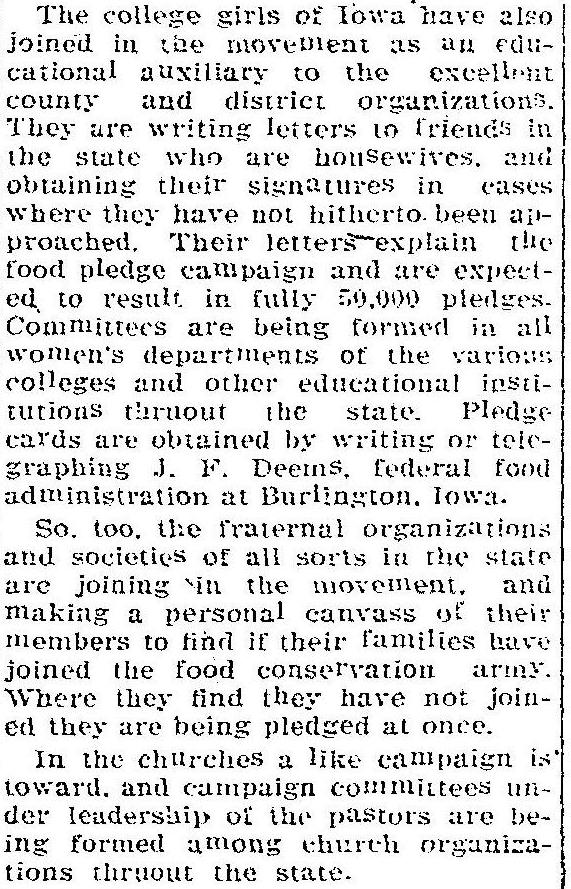
School children would be assigned a special essay on October 15th, to be titled: “Why Every American Family Should Sign the Food Pledge Card.”
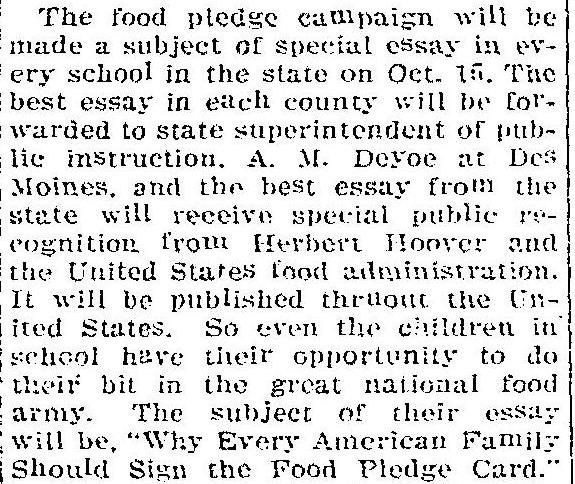
The final pitch.

Just as it would have been nearly impossible to avoid the Red Cross membership and fundraising drives, it would have been equally difficult to miss the call to join the food campaign. I think I can safely assume that a canvas worker knocked on the door of the Coates family home; the working men were approached at work; and the school children heard their teachers talk about the need to conserve food. Eveline must have written an essay about the importance of signing the food pledge. If Eveline’s mother, or Eveline herself, signed the pledge, they may have hung one of these cards in the window of their home.
No one was too young to help win the war. Eat no wheat for breakfast and clean your plate.
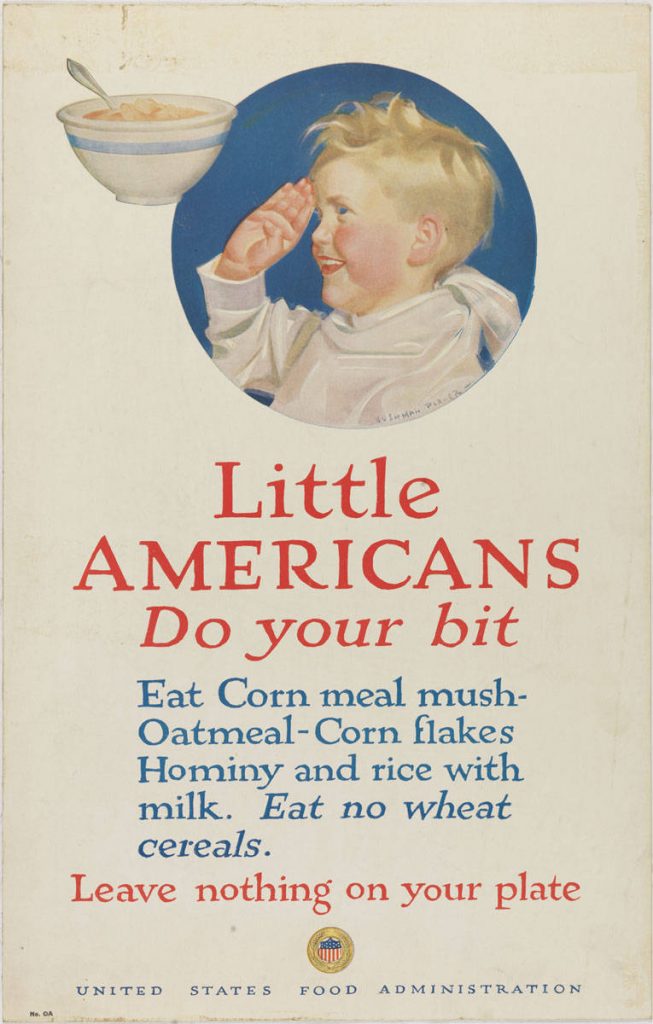
This is my very late contribution to Sepia Saturday, where a child with a similar hairstyle stands tall on a chair, ready to do her bit.
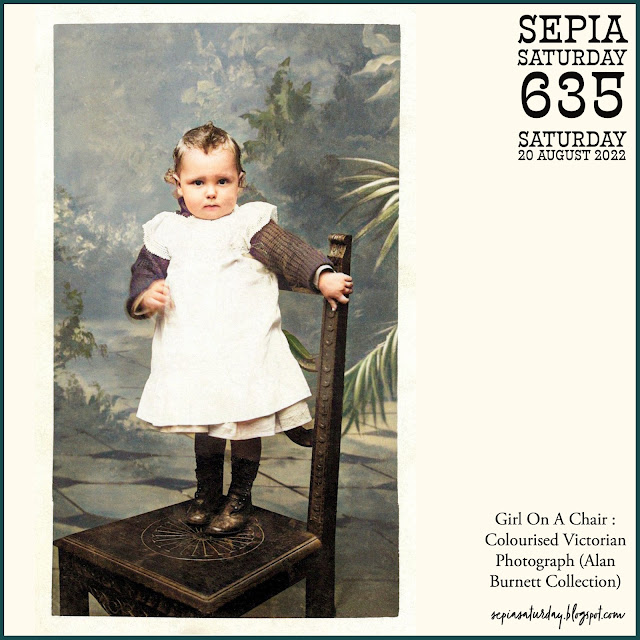
If you would like to read other posts about Eveline’s Senior Year, you can find them here:
Eveline’s Senior Year, Part 1
Eveline’s Senior Year: The Draft and a Carnival
Eveline’s Senior Year: A Look Around Town
Eveline’s Senior Year: Musical Notes
Eveline’s Senior Year: Smallpox
Eveline’s Senior Year: What are you Serving?
Eveline’s Senior Year: Root Beer on the 4th
Eveline’s Senior Year: Miners, Miner and Maps
Eveline’s Senior Year: The Weight of Mining
Eveline’s Senior Year: Gatherings and Gossip
Eveline’s Senior Year: Knit Your Bit
Eveline’s Senior Year: In Search of a Back Story

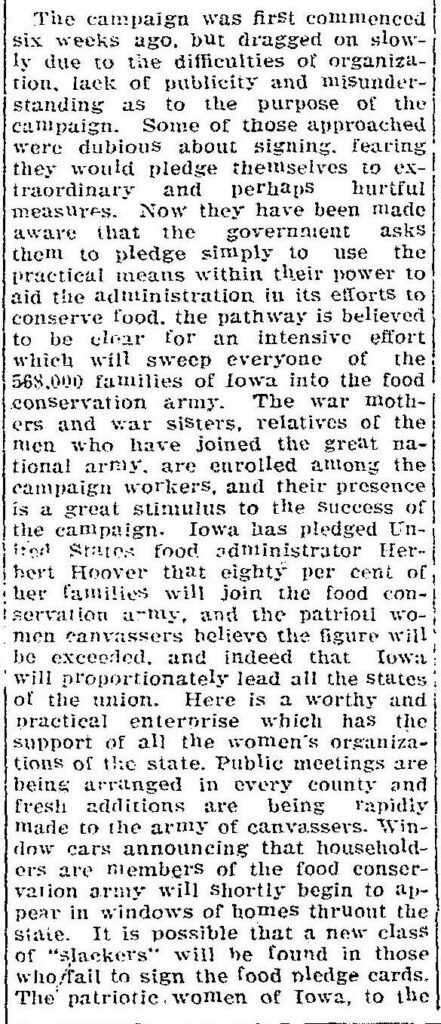
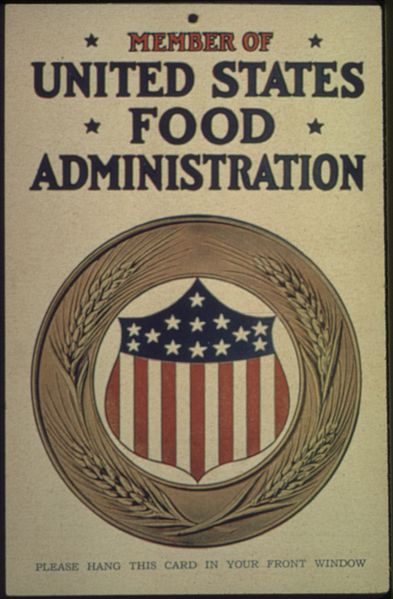
Oh I had never heard of the food drive at the beginning of the US involvement in WW I. Somehow that wasn’t in my history lessons. Interesting that even the children were involved, and all those housewives, sending their food instead to the soldiers. It makes me cringe at all the food waste these days, and how many people are deemed food-insufficient. I somehow qualify, maybe because of relying on Social Security. I do hate to not finish everything on my plate!
I missed that in my history lessons too. I think that’s why I got so wrapped up reading about it in her local newspaper. I’m finding a number of connections with the present.
This was another great post well worth the wait. It’s extraordinary how Americans took up the immense challenges of joining forces with Britain and France. For three years they had read about the suffering caused by the war but now they could finally help. Few people remember that Herbert Hoover was largely responsible for organizing America’s first contribution to the allied nations’ food shortage. But it was after the armistice in 1919 when Hoover basically saved Germany from a devastating famine. Sadly the world is still dealing with threats to the global food chain. I wonder how many Iowan mothers would sign the food pledge today.
Thanks, Mike. You know your history much better than I do! In today’s climate, One would hope that our fellows would work for the common good, but that often seems to be out of favor today.
That seems to be a strange painting on the poster for saving food. The woman looks like she’s begging.
I agree. Maybe that was the intent?